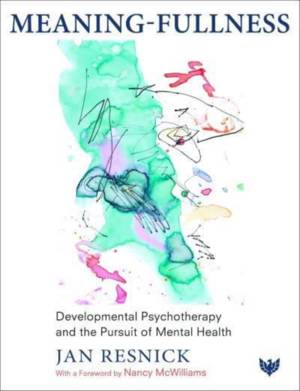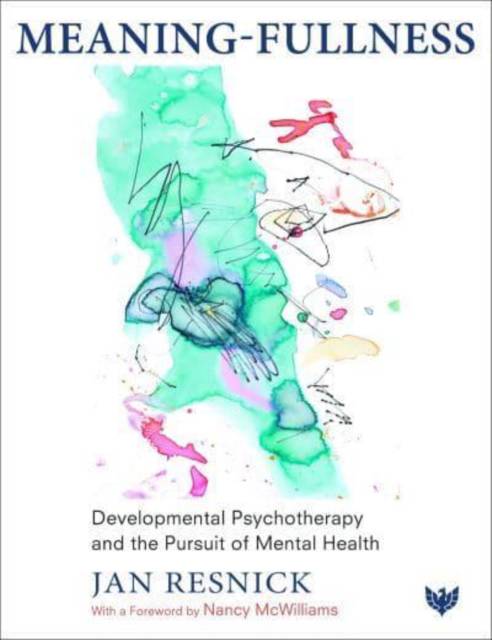
- Afhalen na 1 uur in een winkel met voorraad
- Gratis thuislevering in België vanaf € 30
- Ruim aanbod met 7 miljoen producten
- Afhalen na 1 uur in een winkel met voorraad
- Gratis thuislevering in België vanaf € 30
- Ruim aanbod met 7 miljoen producten
Zoeken
Meaning-Fullness
Developmental Psychotherapy and the Pursuit of Mental Health
Jan Resnick
Paperback | Engels
€ 61,95
+ 123 punten
Omschrijving
With a Foreword by Nancy McWilliams The purpose of Meaning-Fullness: Developmental Psychotherapy and the Pursuit of Mental Health is to show why current mental health practices are falling short in the ever-growing need for effective responses to the epidemic of mental unwellness. Jan Resnick begins by taking a critical look at psychiatry and psychology, especially the misuse and corruption of research that undergirds these practices. He goes on to offer an alternative perspective, understanding, and approach to issues of mental disorders. Resnik focuses upon the existential vacuum, a term originating in Viktor Frankl's classic text Man's Search for Meaning, which refers to feelings of emptiness, purposelessness, and meaninglessness. Feelings that are increasingly prevalent in our contemporary world. The existential vacuum points to a domain of experience not well described by the DSM or treated with a bio-medical approach. A radically different therapeutic approach emerges through elaborating Winnicott's ideas in Playing and Reality, his last published work. Resnick shows how the capacity for meaning-making originates in early childhood development, and how this understanding can be applied to adult experience, thereby making psychotherapy a developmental process. Developmental psychotherapy aims to cultivate a greater capacity for play, creativity, relationship, and meaningful living. In addition, therapy must work toward relief of mental suffering, recovery from trauma, and mitigation, if not resolution, of psychological disorders. The theory is richly supported with clinical examples throughout the book, culminating in a long case study that integrates the ideas with clinical practice, which forms the final part of the book. Dr Jan Resnick has created a must-read work for mental health practitioners the world over. His easy-to-read prose makes it accessible and of value to anyone concerned with issues of mental health and well-being, personal development and creating a meaning-full way of living.
Specificaties
Betrokkenen
- Auteur(s):
- Uitgeverij:
Inhoud
- Aantal bladzijden:
- 288
- Taal:
- Engels
Eigenschappen
- Productcode (EAN):
- 9781800131330
- Verschijningsdatum:
- 2/02/2023
- Uitvoering:
- Paperback
- Formaat:
- Trade paperback (VS)
- Afmetingen:
- 188 mm x 246 mm
- Gewicht:
- 14455 g

Alleen bij Standaard Boekhandel
+ 123 punten op je klantenkaart van Standaard Boekhandel
Beoordelingen
We publiceren alleen reviews die voldoen aan de voorwaarden voor reviews. Bekijk onze voorwaarden voor reviews.











